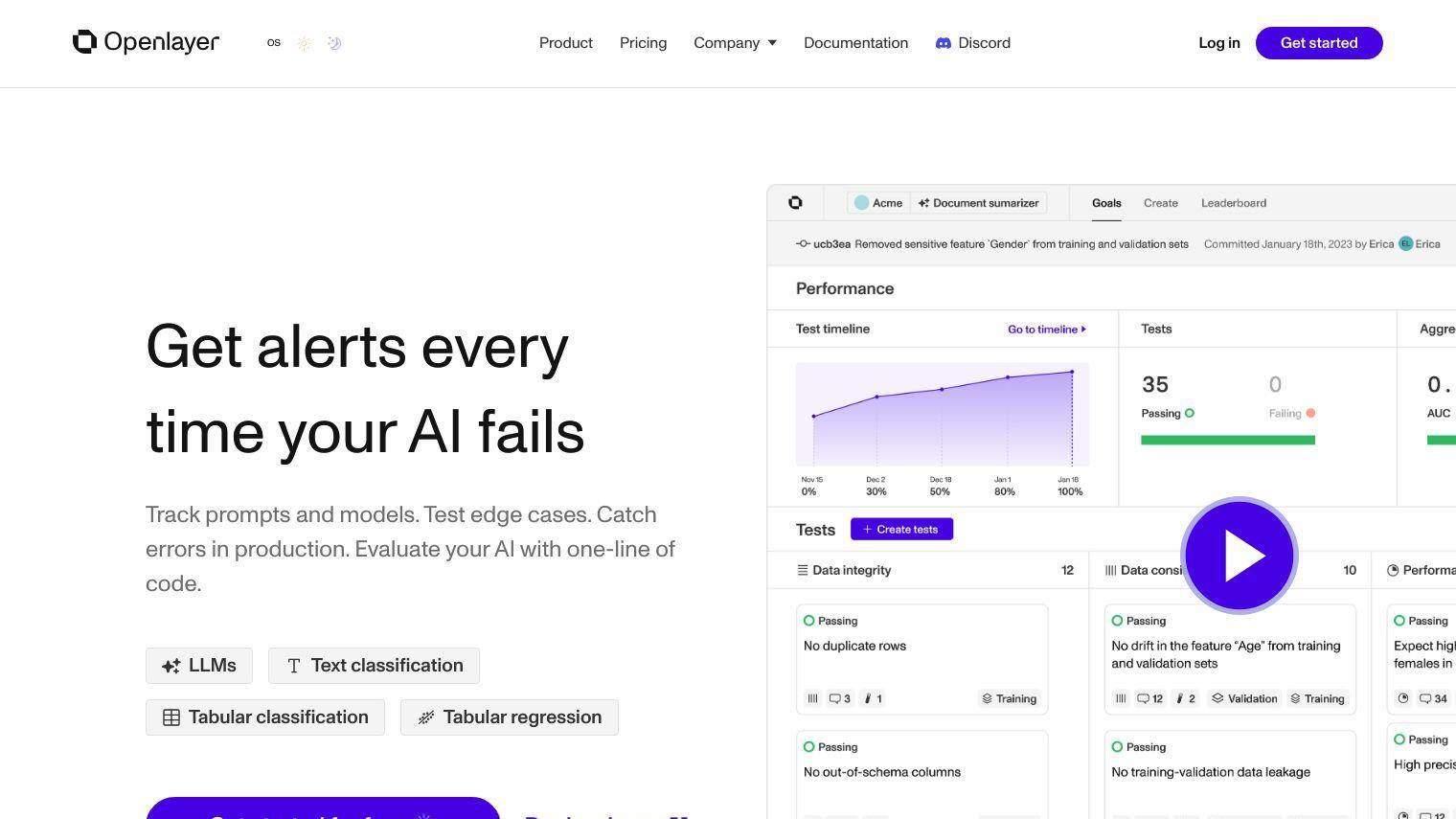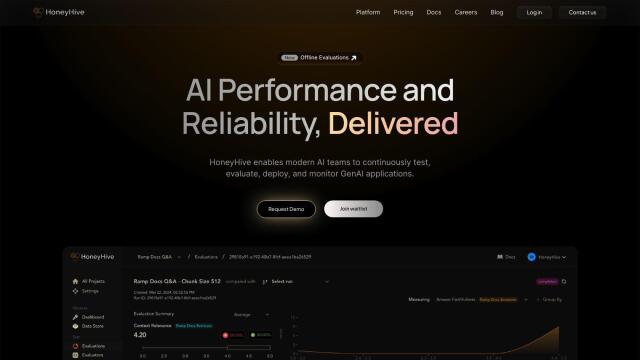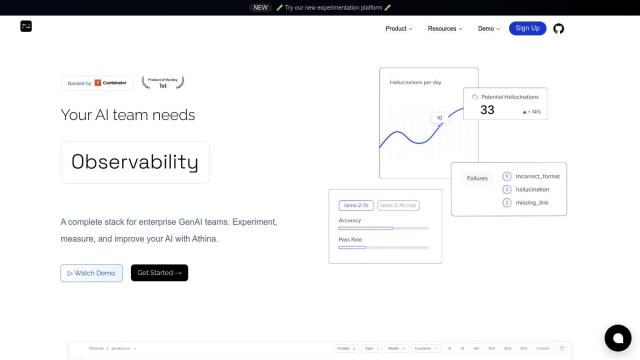Openlayer is a sophisticated platform for building and deploying high-quality, trustworthy AI models from scratch. It's geared to provide robust testing, evaluation and observability tools for large language models (LLMs), so you can be confident your models are working well and working reliably in production.
Openlayer's core job is to monitor prompts and models so you can test edge cases and flag problems as they occur. It does that by raising alerts when an AI system goes wrong, so you can quickly diagnose and fix problems. The platform can handle a range of tasks, including LLMs, text classification, tabular classification and tabular regression.
Some of Openlayer's key features include:
- Automatic Testing: Run a suite of tests on model versions and data to ensure high performance and quality.
- Monitoring and Alerts: Get real-time updates on performance, data quality and model drift through email, Slack or in-app notifications.
- Versioning and Tracking: Manage models, prompts and datasets with a commit-style system so you can easily track and compare versions.
- Developer-Friendly: Easy onboarding, commit-style versioning and notification integration means it's easy to fit into existing workflows.
- Security: SOC 2 Type 2 compliant, with an on-premise hosting option for greater control over data and models.
Openlayer pricing includes a free tier good for hobbyists or students with features like development and monitoring modes, 100,000 monthly monitoring predictions and community Discord support. The custom tier adds more advanced features like unlimited projects, 10M+ annual predictions, SAML/SSO and dedicated support channels. This tier is geared for larger ML teams looking to optimize their workflows.
Openlayer is designed for a variety of user roles, including data scientists, ML engineers, product managers, CTOs and domain experts. Each role can use the platform's features to improve model development, collaboration and deployment. With Openlayer, users can systematically find and fix problems, improve model performance and ensure the reliable deployment of AI models.
Published on June 14, 2024
Related Questions
Tool Suggestions
Analyzing Openlayer...







